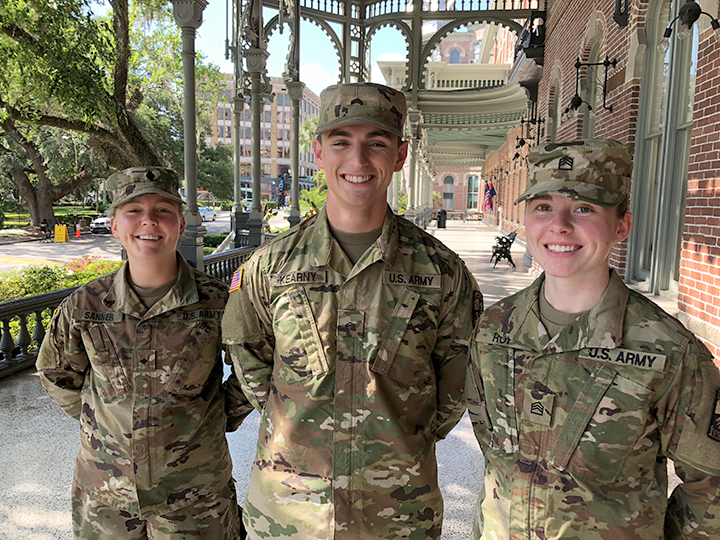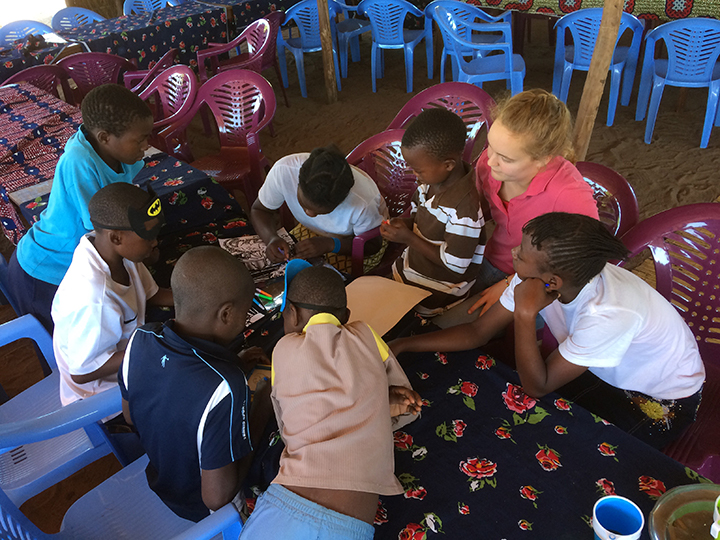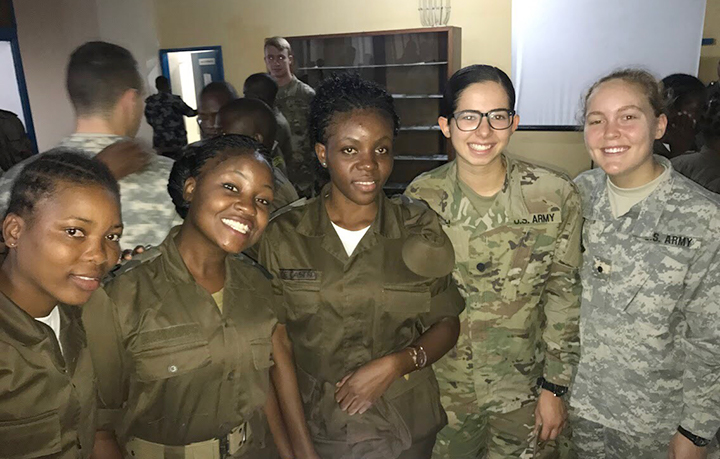Published: August 14, 2018
Mozambique, Bulgaria on Itinerary for ROTC Cadets in Summer Leadership Program
Emily Sanner ’19 woke up in Mozambique for a month this summer. She’d interact with students learning English at the American Culture Center, visit the U.S. Embassy and Ambassador and tour the Naval and Army academies, interacting with cadets from Mozambique’s defense force and learning how they live and train.
“Participating in the program was extremely worthwhile and meaningful, and I wish every cadet in every ROTC program could have an experience like that,” said Sanner, of Hadley, PA. “It’s critical that the leaders of today’s Army understand and respect cultural differences. It’s also important that we see the world through other people’s lenses and realize how small America truly is compared to the rest of the world.”
Sanner was participating in the United States Army Cadet Command’s Cultural Understanding and Leadership Program. She was one of three members of UT’s Spartan Battalion who applied and were selected for nomination by Lt. Col. Scott Greco, director of UT’s ROTC. Erika Roy ’20, a psychology major, was slated to attend the program in Guyana but had to cancel last minute due to a medical emergency.

From left, Emily Sanner ’19, Tyler Kearney ’21 and Erika Roy ’20 were all chosen to participate in the United States Army Cadet Command’s Cultural Understanding and Leadership Program.
“Each trip accomplishes a few objectives including increased cultural competence, community outreach and service projects, military-to-military training experience, and familiarization with theater security cooperation initiatives that we take as a nation to train, equip and support other nations,” Greco said.
Tyler Kearney ’21, a nursing major, attended a program in Bulgaria that focused on observing and participating in NATO joint operations. He also helped teach conversational English to Bulgarian soldiers studying for a required test for promotion.
“A typical day included teaching English to the soldiers in the morning, having lunch with them, and conducting training exercises in the afternoon such as weapons familiarization, land navigation and first aid, among others,” he said. “Along with this, we also went to cultural and historical sights to get a better understanding of their country and culture.”
Sanner, a biology major who was ROTC Cadet of the Year last year and also received the 2018 Active Citizenship Award at UT’s Leadership Awards Night, said she was interested in participating in the program because of her two loves: traveling and humanitarian work.

“Participating in the program was extremely worthwhile and meaningful, and I wish every cadet in every ROTC program could have an experience like that,” said Sanner.
“I work for the PEACE Volunteer Center at UT, so I do a lot of this stuff on my own time as well,” said Sanner, who spent part of her month-long experience in a rural area of Mozambique at a medical clinic and orphanage. “I wanted to do it with the Army and see the differences between volunteering with them and doing it on the civilian side.”
Greco lead a group of 44 cadets from various universities across the nation to a program in Cabo Verde off the northwest coast of Africa.
“It gives the cadets an experience of a lifetime and gives the Army the opportunity to enter nations that we otherwise do not do much with,” Greco said. “It is an expensive investment, but it is well worth it in the long run.”

Sanner, far right, said she was interested in participating in the program because of her two loves: traveling and humanitarian work.
Kearney said it was a humbling experience.
“The Bulgarian military is not supported by the public and are even looked down upon, whereas in the states we enjoy a fairly high level of support from the average American,” said Kearney. “Professionally, I was able to get a small grasp of the importance of building a strong rapport with foreign allies, and I learned that I must be able to adapt my leadership style to accommodate the soldiers from different cultures that I may be working with in the future.”
Have a story idea? Contact Jamie Pilarczyk, Web Writer
Subscribe to News and UT Life stories
Read more UT Life stories
